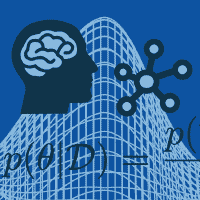Topic Editors


Applications of NLP, AI, and ML in Software Engineering

Topic Information
Dear Colleagues,
The integration of Natural Language Processing (NLP), Artificial Intelligence (AI), and Machine Learning (ML) into Software Engineering is revolutionizing the way software is developed, tested, and maintained. These advanced technologies enable the automation of complex tasks, improve accuracy in bug detection, and enhance code quality. By leveraging NLP, AI, and ML, software engineers can better manage requirements, optimize project workflows, and predict project risks. This topic seeks to showcase cutting-edge research and practical applications that demonstrate the transformative potential of these technologies in the software engineering domain. We invite contributions that explore innovative methodologies, practical tools, and real-world case studies. High-quality studies comparing the efficiency of various algorithms on different datasets are also of particular interest. Such comparative analyses are crucial for understanding the strengths and weaknesses of different approaches, thereby guiding practitioners in selecting the most appropriate techniques for their specific needs. These studies provide valuable insights into algorithm performance, scalability, and adaptability across diverse software engineering contexts. One compelling example of the application of NLP, AI, and ML in Software Engineering is the automated generation of code documentation. By utilizing NLP techniques, AI models can analyze the codebase and generate comprehensive documentation that explains the functionality of the code in human-readable language. This not only saves significant time for developers but also ensures that the documentation is always up-to-date with the latest code changes. Additionally, ML algorithms can be used to predict potential areas in the code that are prone to bugs or require refactoring, further enhancing the efficiency and reliability of the software development process.
Dr. Affan Yasin
Dr. Javed Ali Khan
Dr. Lijie Wen
Topic Editors
Keywords
- natural language processing (NLP)
- artificial intelligence (AI)
- machine learning (ML)
- software engineering
- algorithm comparison
- requirements engineering
- bug detection
- performance analysis
- code quality
- predictive analytics
Participating Journals
| Journal Name | Impact Factor | CiteScore | Launched Year | First Decision (median) | APC | |
|---|---|---|---|---|---|---|

Algorithms
|
1.8 | 4.1 | 2008 | 18.9 Days | CHF 1600 | Submit |

Applied Sciences
|
2.5 | 5.3 | 2011 | 18.4 Days | CHF 2400 | Submit |

Electronics
|
2.6 | 5.3 | 2012 | 16.4 Days | CHF 2400 | Submit |

Machine Learning and Knowledge Extraction
|
4.0 | 6.3 | 2019 | 20.8 Days | CHF 1800 | Submit |

AI
|
3.1 | 7.2 | 2020 | 18.9 Days | CHF 1600 | Submit |

Software
|
- | - | 2022 | 15.7 Days | CHF 1000 | Submit |

Preprints.org is a multidisciplinary platform offering a preprint service designed to facilitate the early sharing of your research. It supports and empowers your research journey from the very beginning.
MDPI Topics is collaborating with Preprints.org and has established a direct connection between MDPI journals and the platform. Authors are encouraged to take advantage of this opportunity by posting their preprints at Preprints.org prior to publication:
- Share your research immediately: disseminate your ideas prior to publication and establish priority for your work.
- Safeguard your intellectual contribution: Protect your ideas with a time-stamped preprint that serves as proof of your research timeline.
- Boost visibility and impact: Increase the reach and influence of your research by making it accessible to a global audience.
- Gain early feedback: Receive valuable input and insights from peers before submitting to a journal.
- Ensure broad indexing: Web of Science (Preprint Citation Index), Google Scholar, Crossref, SHARE, PrePubMed, Scilit and Europe PMC.


